PRESERVING A MILITARY LEGACY FOR FUTURE GENERATIONS
The following Reflections represents 1LT Frank Lavallee’s legacy of his military service from 1966 to 1969. If you are a Veteran, consider preserving a record of your own military service, including your memories and photographs, on Togetherweserved.com (TWS), the leading archive of living military history. The following Service Reflections is an easy-to-complete self-interview, located on your TWS Military Service Page, which enables you to remember key people and events from your military service and the impact they made on your life. Start recording your own Military Memories HERE.
Please describe who or what influenced your decision to join the Army.
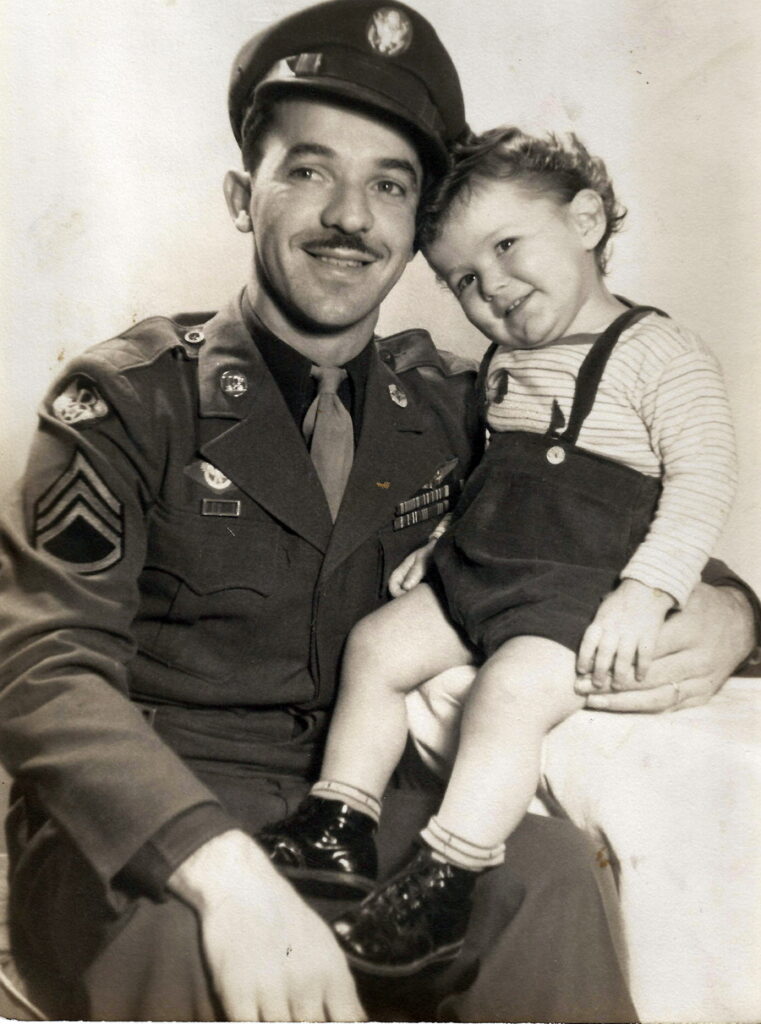
My father was in the U.S. Army Air Force during World War II and was part of a B-17 bomber crew which was stationed at Drew Field in Tampa, Florida. My mother was born and raised in Tampa, so that’s how they met in December 1944. They married a few weeks later, and I was born in November 1945.
After my father received his discharge, we moved to Woonsocket, Rhode Island, where he was born and raised. We lived there until shortly before I was four years old, then we moved back to Tampa, where I grew up and spent 12 years in public school.
After graduating high school in June 1963, I moved in with my father. He and my mother divorced when I was about 12 years old, and I worked full-time in his laundry and dry cleaning plant in Tampa.
After I turned 18 years old, I registered for the military draft. The Vietnam War was in its early stages, so getting drafted wasn’t something I thought about. All that changed in July 1965 when I received my draft notice. I was bused to Miami and spent two days going through the physical and written process.
I wanted to follow in my father’s footsteps and enlist in the Air Force, so I applied for flight training. I was bused to McCoy Air Force Base in Orlando to complete the application process. When I was rejected for flight training because I was prone to motion sickness, I changed my mind and enlisted in the Army.
I was bused to Jacksonville and went through the entire 2-day physical and written process again. I was then bused to Fort Gordon, Georgia, on March 1, 1966, and was sworn in. I begin basic training at Fort Gordon on March 9.
Whether you were in the service for several years or as a career, please describe the direction or path you took. What was your reason for leaving?
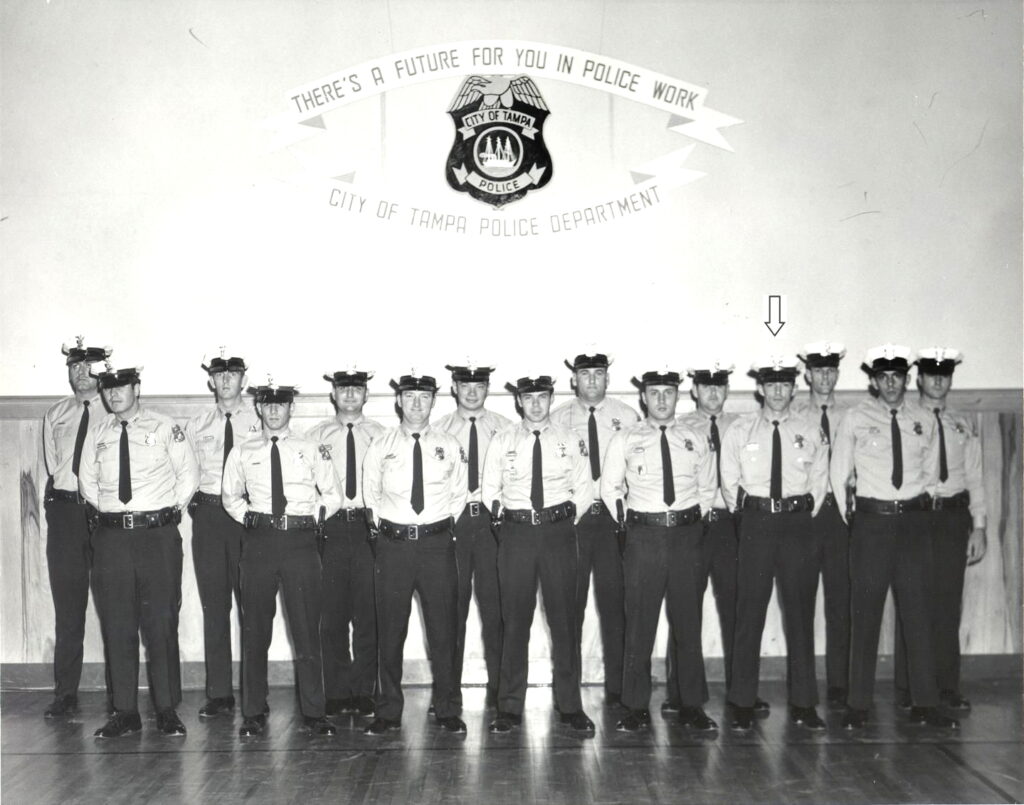
I expected to spend the entirety of my 3-year active commitment in the Army as an enlisted soldier, but all that changed after I completed artillery A.I.T. at Fort Sill, Oklahoma. I was asked to become an officer because I did well on my original written tests and in A.I.T. When I began artillery O.C.S. at Fort Sill on October 16, 1966, I had been in the Army for only 7-1/2 months and had been promoted to P.F.C. about five weeks earlier.
After receiving my commission as 2nd Lieutenant on April 11, 1967, I was assigned to C Battery, 1st/14th Artillery at Fort Hood, Texas. A few weeks later, the 198th Infantry Brigade was formed at Fort Hood, and the 1st/14th Artillery and the 1st/52nd Infantry both became a part of it. I began training with C Company as its Artillery forward observer.
The 198th Infantry Brigade departed San Francisco, California, on the U.S.S. Gordon troop ship on October 6, 1967. After it arrived in Vietnam, I spent the first 2-1/2 months on patrols with C Company as its Artillery forward observer. I then spent the next 1-1/2 months with C Battery as a fire direction control officer. I was then sent to D Company as its Artillery forward observer. On February 25, 1968, I was on my first patrol with D Company when I was shot in my right leg.
After spending almost one month in Vietnam and Japan, I was flown to the military hospital at Fort Gordon, Georgia, on March 23. Because the seriousness of my leg injury kept me in bed and in a wheelchair for most of the six months that I was there, I spent a lot of it reading books brought into my ward every few days by a Red Cross volunteer. I became fascinated with books on law enforcement and considered making it a career after I left the Army.
After being discharged from the hospital on September 28, I returned to Fort Sill, Oklahoma, and commanded its 12-man Vietnam training committee. When my 2-year active-duty commitment as an officer ended, I was honorably discharged from the Army on April 10, 1969.
On August 17, my career in law enforcement began.
If you participated in any military operations, including combat, humanitarian and peacekeeping operations, please describe those which made a lasting impact on you and, if life-changing, in what way?
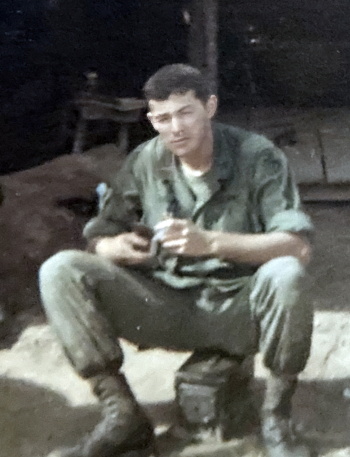
Although I was an officer with C Battery, 1st/14th Artillery, a large part of the four months that I spent in Vietnam with the 198th Infantry Brigade was as a forward artillery observer with the 1st/52nd Infantry.
All but my last patrol was with C Company, which had seven men killed and more than 25 men wounded during that time. My last patrol was with D Company, and I was wounded just before dawn on the second day.
Did you encounter any situation during your military service when you believed there was a possibility you might not survive? If so, please describe what happened and what was the outcome.
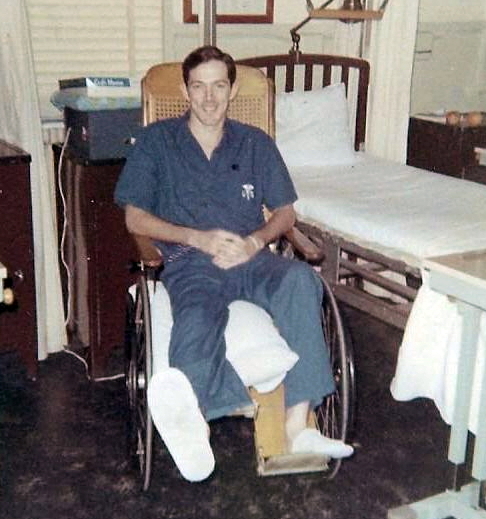
On February 25, 1968, I was on patrol with D Company, 1st/52nd Infantry as its Artillery forward observer. This was my first patrol with D Company, so I didn’t know any of its men except its company commander, Captain Archer.
We were split up into two columns so we could approach a village from 2 sides as dawn approached. As we walked, the sound of small arms fire suddenly pierced the air. A fiery pain was felt in my right leg almost immediately, and I fell backward on the ground. It wasn’t until I felt wetness on my upper right leg and stomach and saw blood on my hands that I realized I had been shot. After I yelled out that I had been shot, a medic quickly came to my aid. I was losing so much blood that I feared I would bleed to death. The medic stopped the bleeding with several battle dressings and saved my life.
About 45 minutes later, there was enough daylight for a Huey helicopter to arrive and airlift me from the field. I was flown to the U.S.S. Sanctuary hospital ship, which was anchored offshore at Da Nang. After I woke up from surgery and saw my right foot, I was very relieved that I hadn’t lost my right leg. The doctor who operated on me told me that my right femur had been shattered and that the femoral vein had been severed and that I had lost about 2 quarts of blood. He told me that I had a long recovery ahead of me and would be sent back to the United States.
After spending almost three weeks on the hospital ship, two days in Da Nang, then four days at Camp Zama, Japan, I was flown to the military hospital at Fort Gordon, Georgia, on March 23th. After a total of 3-1/2 months in traction and 2-1/2 months in a walking cast, and one month of rehabilitation, I fully recovered and was discharged from the hospital on September 28.
Of all your duty stations or assignments, which one do you have fondest memories of and why? Which was your least favorite?
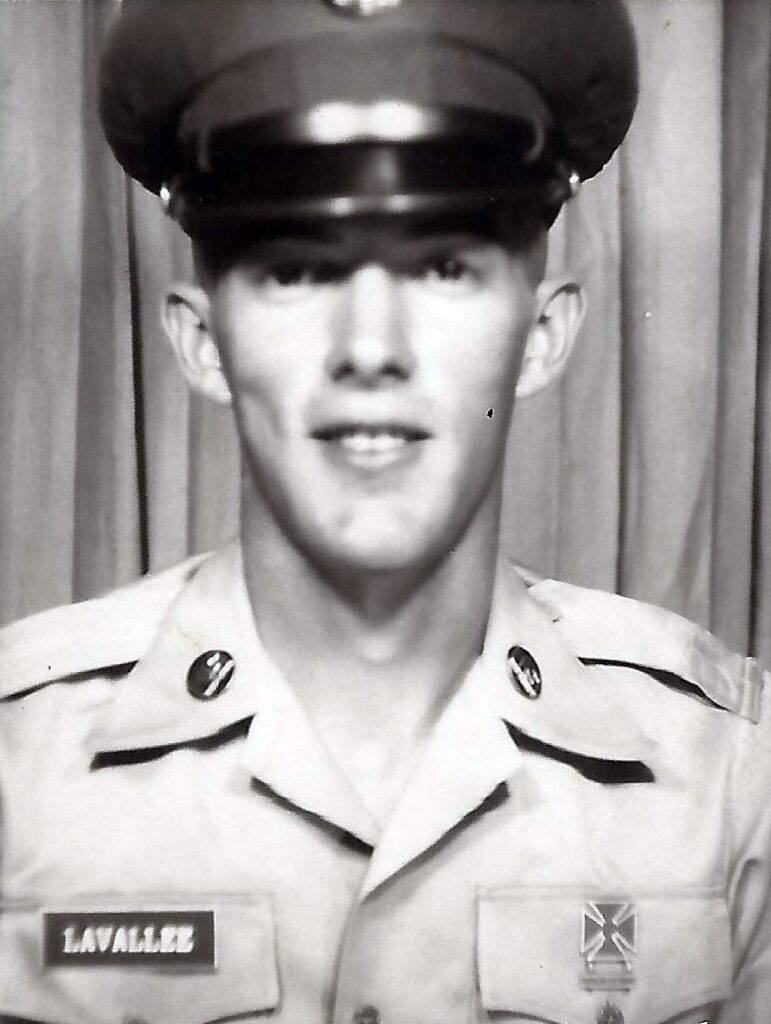
Going through basic training (March 1966 – May 1966) at Fort Gordon, Georgia, was the least favorite. The senior drill instructor punched me in the stomach to show the other recruits what a proper blow in the solar plexus could do. I later developed pneumonia from lying on the cold, wet ground and spending six days in the hospital.
Being the officer-in-charge of the Vietnam Training Committee (October 1968 – April 1969) at Fort Sill, Oklahoma, was my favorite. The entire 12-man staff was Vietnam veterans with a rank of E-5 and E-6, most of whom had been in the Army longer than me. We maintained an informal relationship when we weren’t training troops. If I had been allowed to remain Officer-In-Charge of this unit after being asked to extend my active duty commitment to the Army for another 12 months, I probably wouldn’t have declined that request.
From your entire military service, describe any memories you still reflect back on to this day.
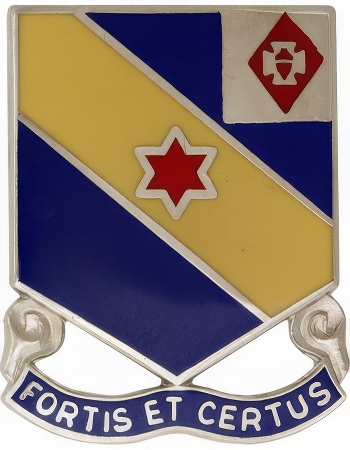
The January 6, 1968 patrol with C Company, 1st/52nd Infantry, resulted in 6 men killed and almost 20 men wounded. Most of my four months in Vietnam with the 198th Infantry Brigade are faded memories, but certain parts of that patrol will never be forgotten.
What professional achievements are you most proud of from your military career?
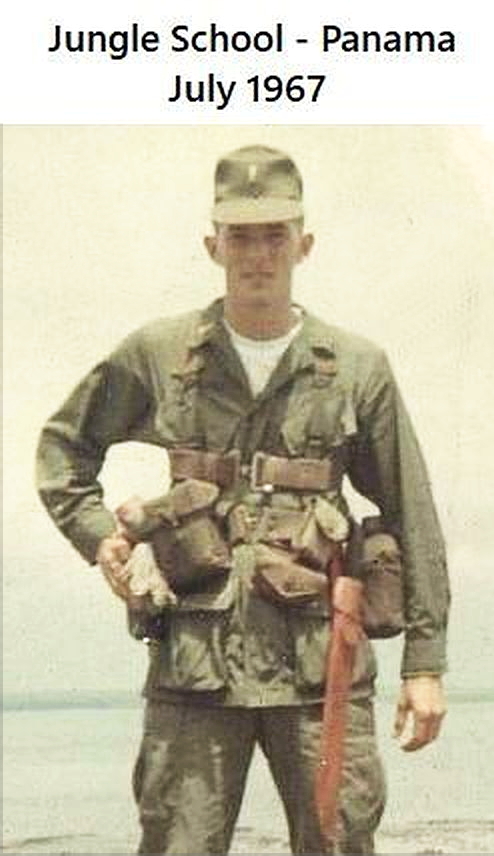
Receiving an officer’s commission at Fort Sill, Oklahoma.
Receiving a “Jungle Expert” patch in Panama.
Receiving Bronze Star and Purple Heart medals and a Certificate Of Achievement for my service in Vietnam.
Of all the medals, awards, formal presentations and qualification badges you received, or other memorabilia, which one is the most meaningful to you and why?
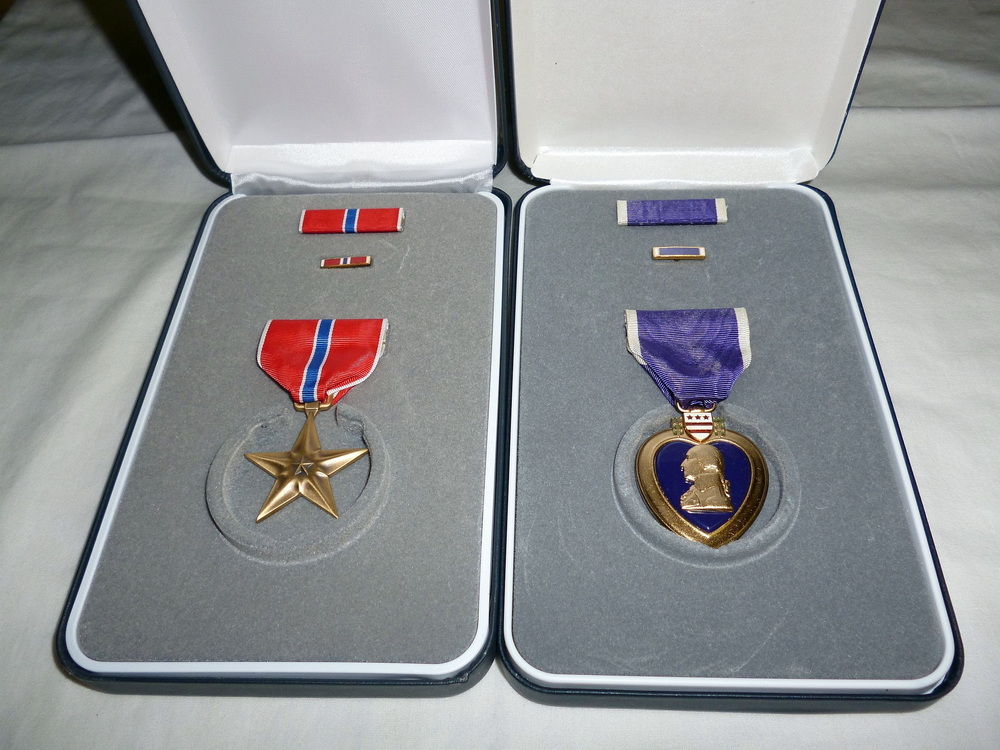
Bronze Star medal
Purple Heart medal
Certificate Of Achievement
I received them for my service as an artillery forward observer with C Company, 1st/52nd Infantry, while serving in Vietnam.
Which individual(s) from your time in the military stand out as having the most positive impact on you and why?
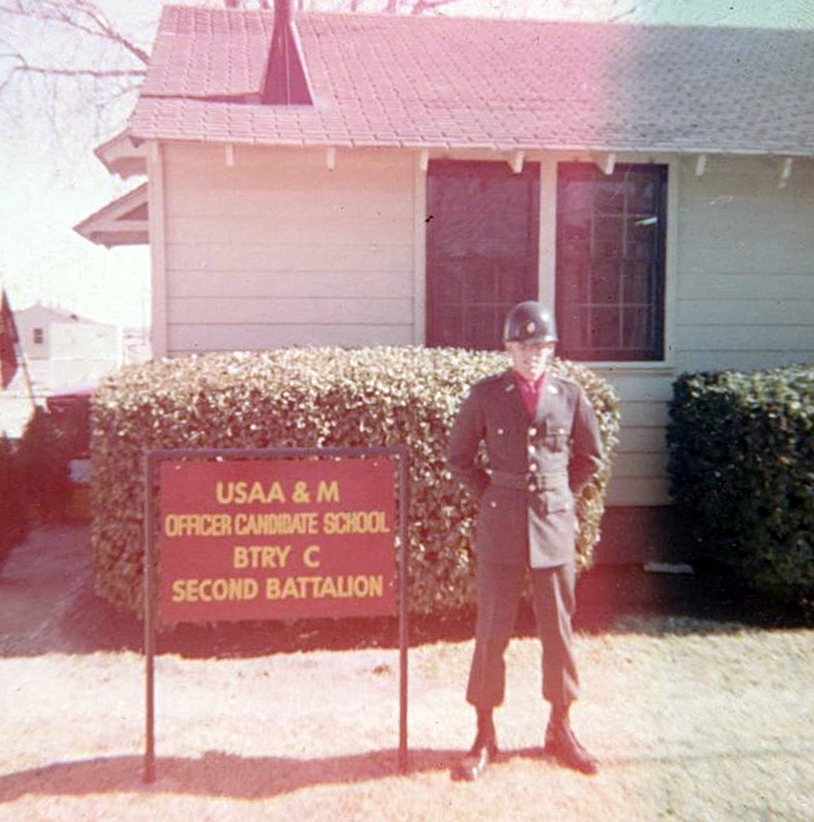
I would have to say it was my O.C.S. Battery Commander, Captain E..J. Farrow. When I wanted to drop out of O.C.S. during the 6th week because I wasn’t sure if I had the boldness and confidence to be a good officer, he encouraged me to remain and stick it out. It was a difficult 5-1/2 months for me, but I made it and graduated with my class (13-67).
List the names of old friends you served with, at which locations, and recount what you remember most about them. Indicate those you are already in touch with and those you would like to make contact with.
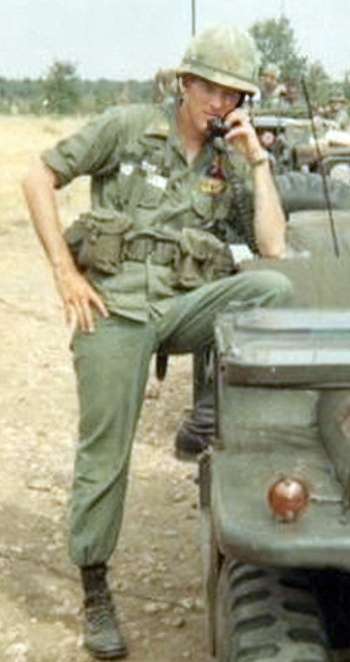
Lt. Frank Salazar:
Battery commander of C Battery, 1st/14th Artillery at Fort Hood, Texas. It was my first assignment after receiving an officer’s commission. He had an outstanding personality, and we quickly became friends. We attended jungle training together in Panama before we went to Vietnam. We met again at Fort Sill, Oklahoma, after he returned from Vietnam and after I was discharged from the hospital. We spent the Thanksgiving 1968 weekend in San Antonio, Texas. We lost track of each other after I left the Army.
Lt. Mike Pfetsch:
One of the officers of C Battery, 1st/14th Artillery at Fort Hood, Texas. We both trained as an artillery forward observers with the 1st/52nd Infantry before going to Vietnam. We became friends, but we rarely saw each other after arriving in Vietnam because of our assignments. We met again at Fort Sill, Oklahoma, after he returned from Vietnam and after I was discharged from the hospital. We lost track of each other after I left the Army. We met again in April 2014 during a reunion for Charlie Battery.
Can you recount a particular incident from your service, which may or may not have been funny at the time, but still makes you laugh?
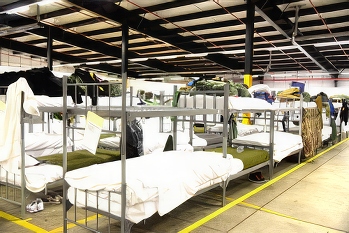
My bunkmate in basic training had the top bunk. One night at about 3:00 A.M., I was awakened by something dripping on me. When I shined my flashlight up at the bottom of his bunk, his mattress was wet and had drops dripping from it.
When I got up and shined my flashlight on him, I discovered he had pissed on himself, and it had soaked through his mattress and dripped on me. He was passed out drunk, so I had to shake him a few times to wake him up and make him aware of what he had done. After I took a shower and put on clean clothes, I slept on the floor for the rest of the night.
Our platoon Drill Instructor wasn’t happy about both of us needing to have our mattresses and sheets replaced. Needless to say, I had the top bunk for the rest of basic training.
What profession did you follow after your military service, and what are you doing now? If you are currently serving, what is your present occupational specialty?
I left the Army on April 10, 1969. My career in law enforcement began more than four months later, on August 17. I never expected it to last for more than 33 years.
Tampa Police Department (more than nine years)
St. Petersburg – Clearwater Airport Police Department (almost three years)
Plant City Police Department (more than 21 years).
I retired on May 2, 2003.
What military associations are you a member of, if any? What specific benefits do you derive from your memberships?
In what ways has serving in the military influenced the way you have approached your life and your career? What do you miss most about your time in the service?
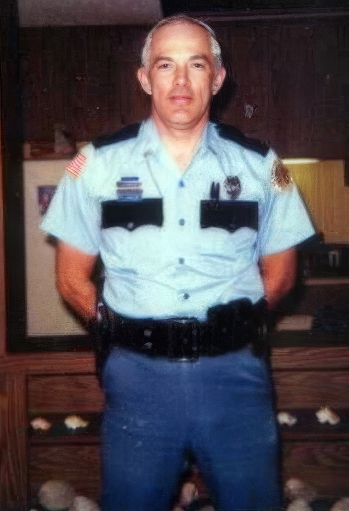
The chain of events that occurred while serving in the Army and Vietnam led me to have a long career in law enforcement.
Based on your own experiences, what advice would you give to those who have recently joined the Army?

The Army has changed very much since I was part of it, and it offers more perks and more opportunities for making it a career.
In what ways has TogetherWeServed.com helped you remember your military service and the friends you served with?
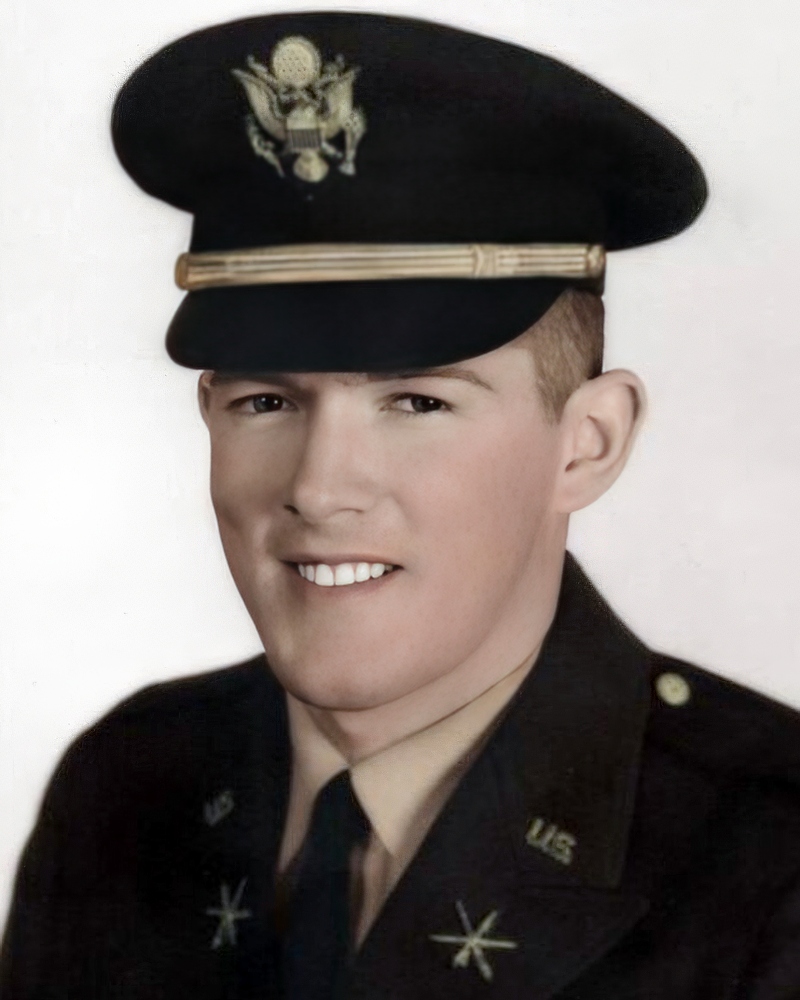
It allows me to connect with former members I trained and served in Vietnam.
It also allows me to reflect on my time in the Army.
PRESERVE YOUR OWN SERVICE MEMORIES!
Boot Camp, Units, Combat Operations
Join Togetherweserved.com to Create a Legacy of Your Service
U.S. Marine Corps, U.S. Navy, U.S. Air Force, U.S. Army, U.S. Coast Guard
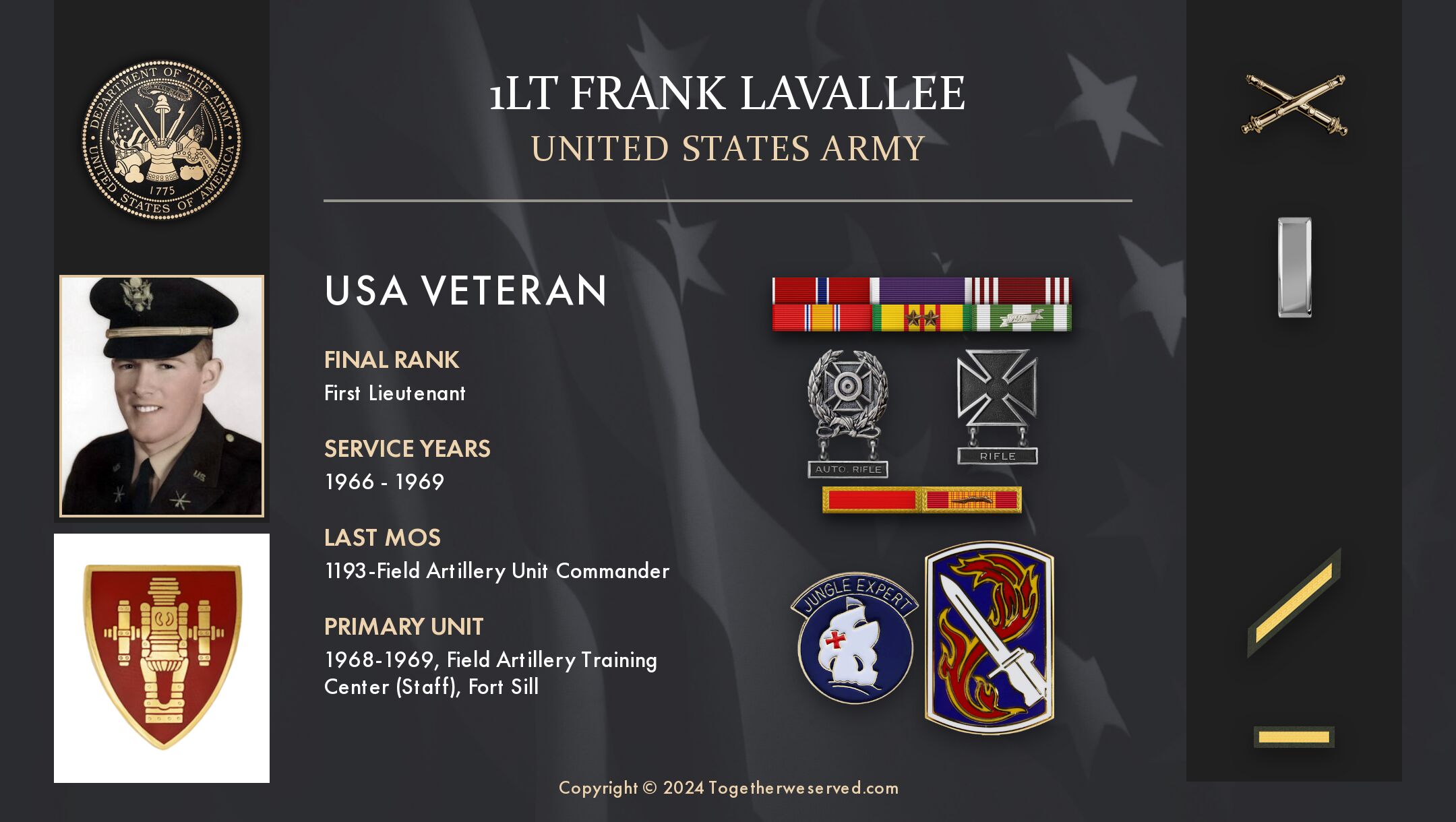
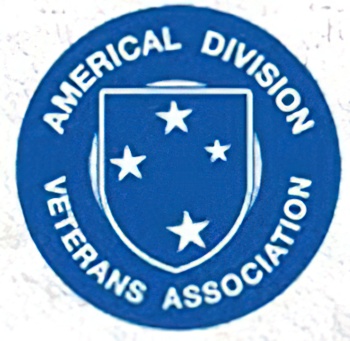
0 Comments